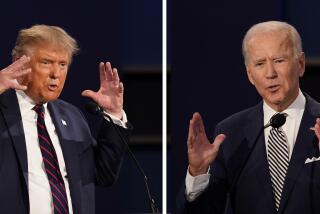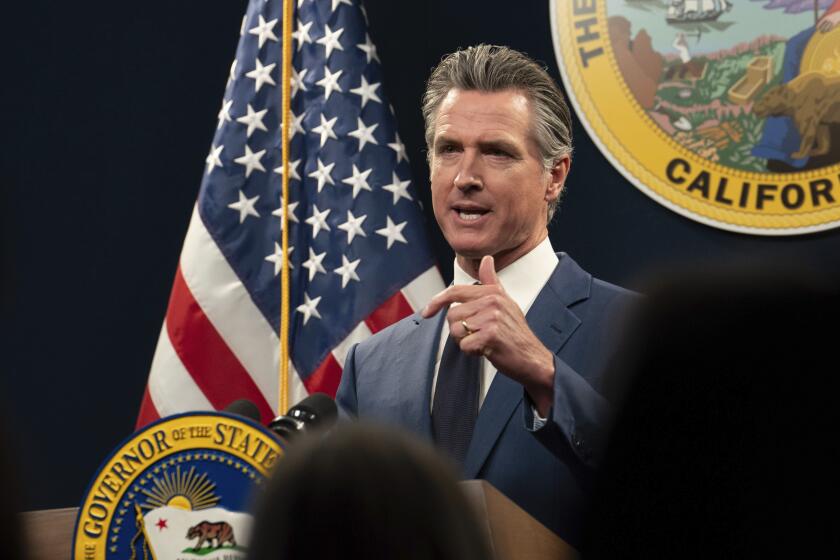Tightening of Open Meeting Law Sought
Atty. Gen. John K. Van de Kamp and Senate President Pro Tem David A. Roberti revived efforts Tuesday to pass legislation aimed at closing loopholes in open meeting laws that they said are allowing local government agencies to conduct increasing amounts of public business in secret.
Van de Kamp said at a Capitol news conference that current law provides “a shield for private discussion of virtually any sensitive issue which might conceivably become the subject of litigation.”
Michael B. Dorais, general counsel and lobbyist for the California Newspaper Publishers Assn., which is sponsoring the bill, said “some city councils, boards of supervisors and school boards believe they may meet secretly on any legal matter with their (lawyers), even if no litigation is filed or threatened.”
Clearer Definitions
The proposed legislation more clearly defines conditions under which government agencies may meet behind closed doors in so-called executive sessions.
Gov. George Deukmejian vetoed a similar bill last year, citing what he said were undue restrictions the legislation would have placed on government agencies. Deukmejian has not taken a position on the current version of the bill.
Last year’s bill, also carried by Roberti, a Los Angeles Democrat, passed with bipartisan support in both the Assembly and Senate. It was the subject of active lobbying by news organizations, public officials and some civic groups, which supported it, and local government agencies, which opposed it.
Among the other supporters of the current bill are the California Broadcasters Assn. and the League of Women Voters.
League Still Opposed
One of last year’s strongest foes, the League of California Cities, remains opposed. The County Supervisors Assn. of California, another opponent, has not taken a position on the redrafted measure.
Roberti called the current version of the bill “a fair compromise between the need of government for candid legal advice about pending litigation and the right of citizens to witness their government in action.”
Current law requires that meetings of local legislative bodies be “open and public,” except meetings that involve personnel matters, national or public security, labor negotiations, license applications by rehabilitated criminals, real property negotiations and pending litigation.
The proposed legislation is aimed at more clearly and sharply defining what is meant by “pending litigation” and would not change any of the other exemptions allowed under the state’s two open meeting laws. They are the Brown Act, which covers meetings by local government, and the Bagley-Keene Open Meeting Act, which applies to state agencies. The Legislature exempted itself from both laws.
Must State Reasons
The bill would continue to allow state or local government agencies to hold closed meetings to discussion pending litigation. But, among other things, it would require lawyers for the government agencies to prepare written memorandums “stating the specific reasons and legal authority for the closed session.”
One of Deukmejian’s objections to the earlier bill was that it would have brought executive “task forces”--appointed groups that have only limited advisory powers--under the provisions of the state’s open meetings laws. That provision was dropped from the current bill in an effort to get the governor’s support.
Local government officials say their biggest concern is that any public discussion of pending litigation would compromise their legal cases, provide ammunition to opposing attorneys and expose public treasuries to bigger monetary judgments.
‘Very, Very Fine Line’
Vicky Clark, spokeswoman for the League of California Cities, said the proposed changes would be too restrictive on cities. She said the new Roberti law would draw “a very, very fine line” in defining “pending litigation.”
“It puts the public in a bad situation, where any strategies a city is going to produce could come out in the open and help its opponents in a potential lawsuit,” she said.
More to Read
Get the L.A. Times Politics newsletter
Deeply reported insights into legislation, politics and policy from Sacramento, Washington and beyond. In your inbox three times per week.
You may occasionally receive promotional content from the Los Angeles Times.






